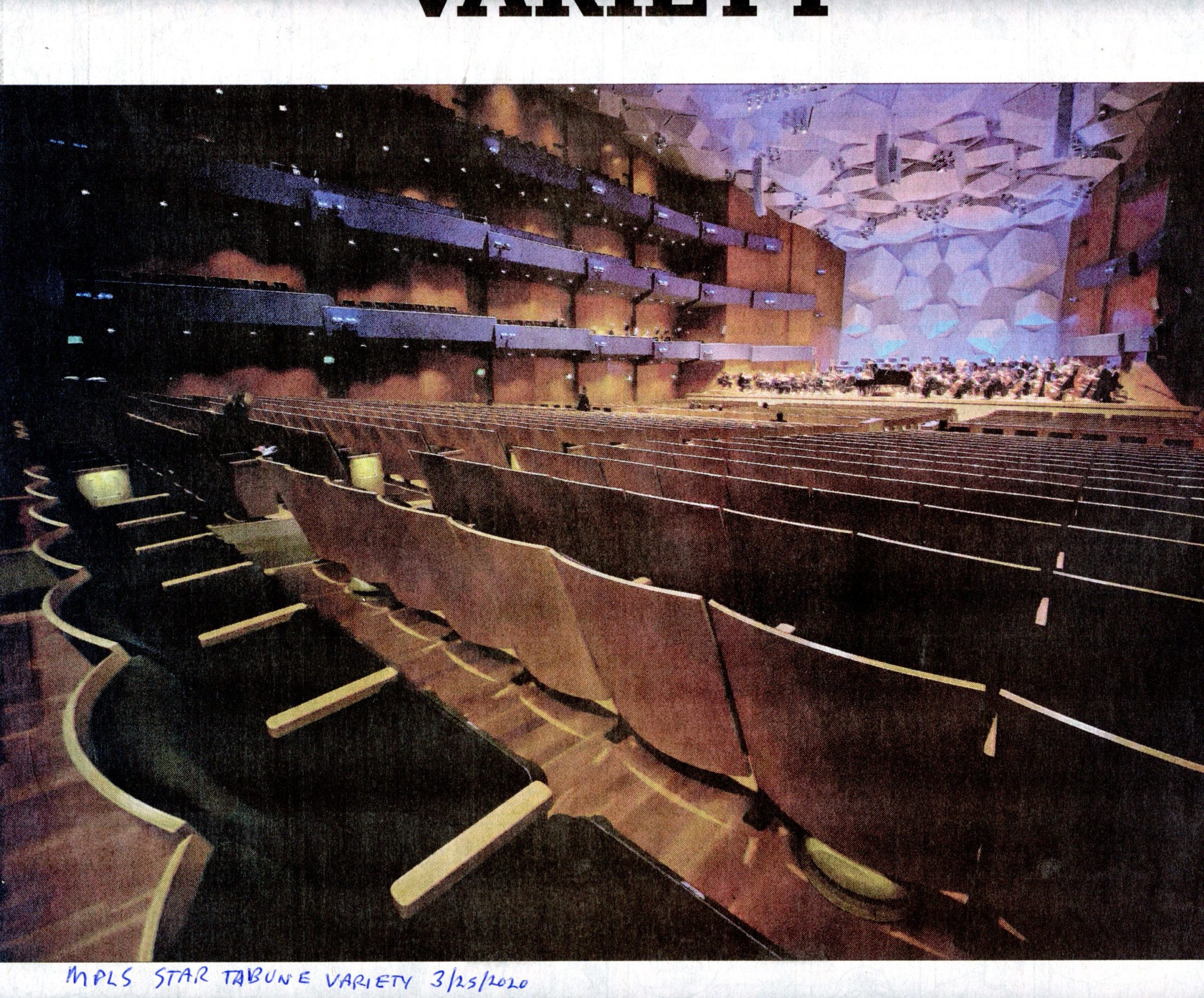COVID-19 The Orchestra
Today’s paper brought a most welcome article on the front page of the Variety Section. The photo begins the story; the text follows:
The accompanying article by Jenna Ross can be read here. A recording of the evening program can be heard here. This is an absolutely remarkable gift to everyone during this intense time of change.
In my first post about Coronavirus, March 6, I wrote that we were at Orchestra Hall for the same Minnesota Orchestra the previous day. That day the program was composed by Franghiz Ali-Zadeh – Nagillar (Fairy Tales); Concerto No. 2 in C-sharp minor by Shostakovich; and Prokofiev’s Symphony No. 5 in B-flat major.
In these troubled times, sit back and enjoy two marvelous hours of a superb symphony orchestra and guests. And look back at the previous post, March 23, “New Normal”. There have been, so far, over a dozen comments, all on-point, all interesting.
More later.
COMMENTS CONTINUE FROM PREVIOUS POSTS:
from SAK, who writes from England: I remember reading Camus’ The Plague for an English course as a teenager. I was impressed, no shocked, & I therefore still remember bits so many years later. I was looking for one such bit & hit upon [this]: & you know how road leads to road according to Robert Frost and how link leads to link nowadays: here.
The book ends with:
“And, indeed, as he listened to the cries of joy rising from the town, Rieux remembered that such joy is always imperilled. He knew what those jubilant crowds did not know but could have learned from books: that the plague bacillus never dies or disappears for good; that it can lie dormant for years and years in furniture and linen-chests; that it bides its time in bedrooms, cellars, trunks, and bookshelves; and that perhaps the day would come when, for the bane and enlightening of men, it would rouse up its rats again and send them forth to die in a happy city.”
Many saw the plague in the book (1947) as an allegory for fascism but it’s also interesting from a literary point of view as well as an analysis of a society in crisis.
As for the aftermath & the choices societies have to make, this might be of interest. Harari writes that an “important choice we confront is between nationalist isolation and global solidarity” adding: “But the current US administration has abdicated the job of leader. It has made it very clear that it cares about the greatness of America far more than about the future of humanity. This administration has abandoned even its closest allies. . . . Even if the current administration eventually changes tack and comes up with a global plan of action, few would follow a leader who never takes responsibility, who never admits mistakes, and who routinely takes all the credit for himself while leaving all the blame to others. If the void left by the US isn’t filled by other countries, not only will it be much harder to stop the current epidemic, but its legacy will continue to poison international relations for years to come. ”
POSTNOTE: You need to watch this, from England.


Leave a Reply
Want to join the discussion?Feel free to contribute!